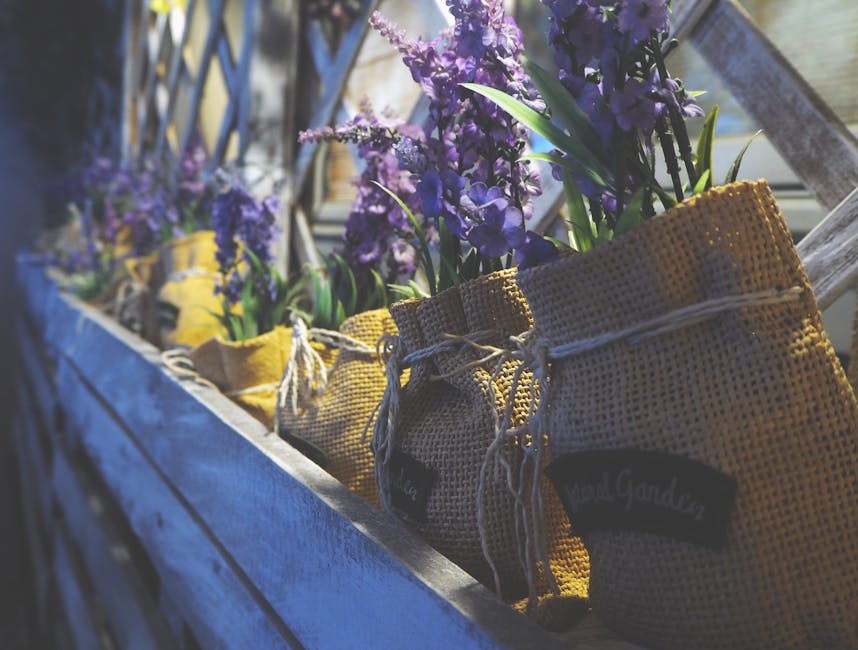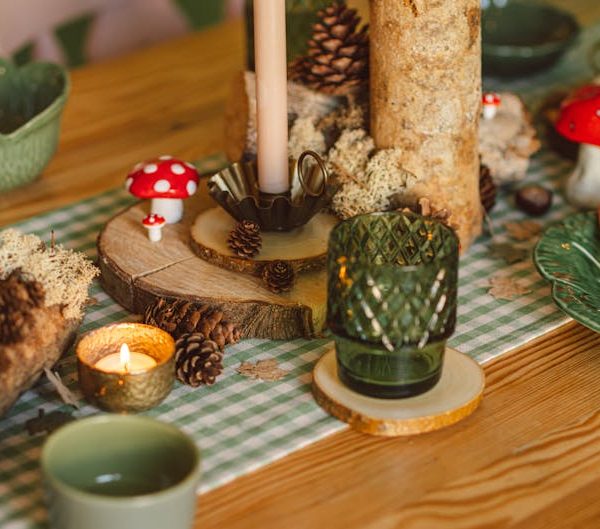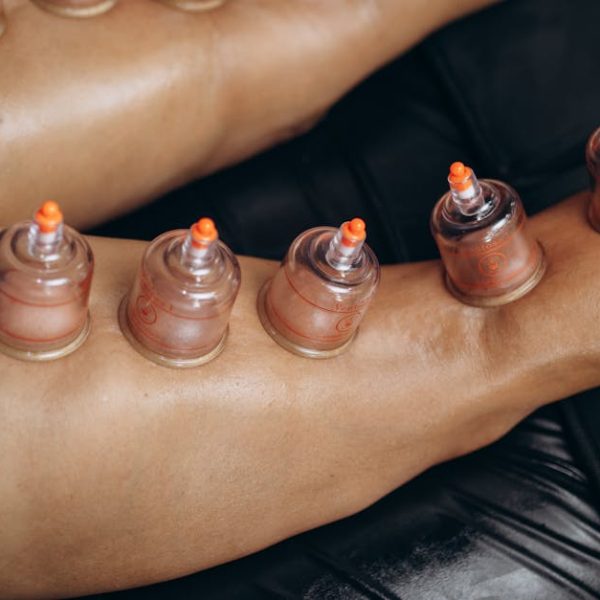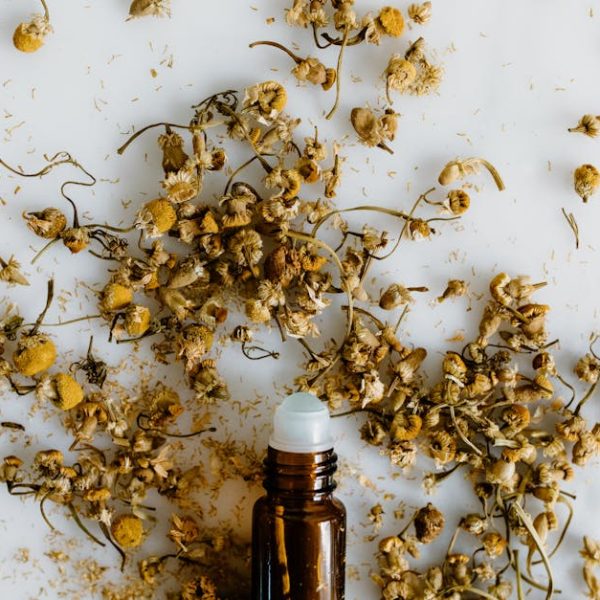In the hustle and bustle of modern life, quality sleep often eludes us. For those seeking natural solutions to improve their slumber, the remedy may be as simple as the scent of essential oils. A key player in the world of aromatherapy, essential oils offer a variety of sleep benefits, from calming the mind to promoting deep and restful sleep. Let’s dive into the wonderful world of aromatherapy and explore over 20 essential oils that can enhance your sleep naturally.
Unwind with Lavender
Lavender oil is a perennial favorite in the realm of sleep enhancement. It’s renowned for its sedative properties, which have been proven scientifically to foster a sense of calmness and relaxation. By reducing anxiety and emotional stress, Lavender oil prepares your nervous system for a night of rejuvenating sleep.
Pro Tip: Add a few drops of lavender oil to a diffuser and let it permeate your bedroom before sleep.
To ensure maximum effectiveness:
- Choose oils that are 100% pure, free from additives and adulterants.
- Look for Lavandula Angustifolia, the most potent lavender species.
- Opt for brands that use steam distillation for extraction.
Chamomile: The Insomnia Busting Powerhouse
Used widely for its soothing and relaxing qualities, Chamomile oil is a strong ally against insomnia. The magic lies in its central compound, Apigenin, which induces sleepiness and helps maintain sleep throughout the night.
For the most profound effects:
- Massage a few drops of chamomile oil onto your temples or wrists.
- Add a dash to your night-time bath for a luxurious, sleep-inducing soak.
Popular brands known for their high-quality, pure Chamomile essential oil include Plant Therapy, Eden’s Garden, and doTERRA.
Experience Tranquility with Cedarwood
Rich with sedative properties, Cedarwood oil holds the prowess to stimulate the secretion of serotonin – the precursor to the sleep hormone, melatonin. By encouraging a healthy sleep cycle, it’s a potent solution for sleep issues.
In comparison to other sleep-inducing essential oils, Cedarwood stands out with its unique woody scent and exceptional therapeutic properties.
Pro Tip: For safe topical application, a blend of Cedarwood oil with a carrier oil like coconut or almond oil is ideal. Alternatively, its serene fragrance diffused throughout the room can summon sleep effortlessly.
Enter Sleep’s Embrace with Clary Sage
Possessing an enigmatic scent that promotes relaxation, Clary Sage oil is coveted for its ability to induce feelings of tranquillity. It’s an effective weapon against insomnia, thanks to its potential to reduce cortisol levels and alleviate stress.
The optimum use of Clary Sage oil encompasses:
- Applying to pressure points, such as the soles of the feet and the nape of the neck.
- Diffusing it in the bedroom an hour before sleep.
Verify the oil’s purity before use by ensuring its Latin name, Salvia Sclarea, appears on the label. It should also bear a clear, crisp scent – a hallmark of quality Clary Sage oil.
Ylang Ylang: Your Sleep Cycle Regulator
Appreciated for its exotic fragrance, Ylang Ylang oil shines in the context of sleep. It’s known to regulate sleep patterns and can assist those suffering from erratic or disturbed sleep.
While the benefits are commendable, some may find Ylang Ylang’s aroma overpowering. Thus, it’s crucial to dilute it with a carrier oil or blend it with other essential oils.
Pro Tip: Mixing Ylang Ylang with delicate scents like lavender or chamomile can balance its strong fragrance and augment its sleep-inducing benefits.
Potent Blends: The Best of Both Worlds
Harnessing the power of two or more essential oils can create potent blends that bestow improved sleep. Combining lavender and bergamot or chamomile and vetiver may offer a symphony of relaxing scents that encourage a significant sleep boost.
Homemade DIY blends offer personalized sleep solutions:
- ‘Peaceful Night’: 2 drops of Lavender, 1 drop of Roman Chamomile, and 1 drop of Vetiver.
- ‘Sweet Slumber’: 2 drops of Cedarwood, 2 drops of Bergamot, and 1 drop of Ylang Ylang.
Adding these blends to diffusers, infusing them into baths, or applying them to skin (properly diluted) are ideal ways to unleash their sleep-inducing magic.
Peppermint: The Coolant for Sleep
Renowned for its refreshing scent, Peppermint oil carries significant benefits for sleep. Its cooling effect helps mitigate stress and induces a calming, sedative effect, promoting restful sleep.
Pro Tip: A drop of peppermint oil on your pillow can ensure a refreshing sleep experience. However, remember to use sparingly as overuse can cause the opposite effect.
When choosing Peppermint oil:
- Opt for the Latin name on the label, Mentha piperita.
- Seek a clear, crisp aroma, signaling a quality product.
- Choose brands that ensure steam distillation for extraction.
Frankincense: The Crown Jewel for Relaxation
Frankincense oil, renowned as the ‘King of Essential Oils’, harbours an aroma that stimulates tranquillity. The oil is known for its ability to alleviate stress, reduce anxiety, and induce deep sleep.
To gain maximum benefits:
- Dilute a few drops of Frankincense in a carrier oil and massage it into the feet, wrists, or back of the neck before bed.
- Diffuse in your bedroom for a serene pre-sleep environment.
Do remember:
- Go for 100% pure Frankincense oil with the species name Boswellia Serrata or Boswellia Carterii.
- Trusted brands for quality Frankincense include Young Living, Plant Therapy, and doTERRA.
Bergamot: Your Fresh Sleep Companion
Distinct from most citrus oils, Bergamot’s aroma is calming and mood lifting. Its ability to invoke feelings of positivity and joy contributes to a restful night’s sleep.
Bergamot usage tips include:
- Diffusing Bergamot in your bedroom.
- Adding a few drops to your bath for a tranquil soak.
Given its photosensitive nature:
- Avoid sun exposure after topical application, as it can cause skin irritation.
- Consider blending it with less photosensitive essential oils for a balanced and enhanced effect.
Introducing Essential Oil Recipes for Enhanced Sleep Quality
Combining different essential oils creates therapeutic synergy promoting an improved sleep experience. Let’s explore a few sleep-inducing recipes that you can whip up at home.
For an aromatic bedtime blend:
- ‘Ultimate Dream’: Combine 2 drops of Frankincense, 2 drops of Chamomile, and 2 drops of Bergamot.
Or for a refreshing sleep enhancer:
- ‘Soothing Tranquility’: Blend 2 drops of Lavender, 2 drops of Cedarwood, and 1 drop of Peppermint.
Incorporating these blends in your bedtime routine by adding them to a diffuser, a warm bath, or as a massage oil (properly diluted) can foster an inviting environment for deep, restorative sleep.
The Rested Conclusion
Incorporating essential oils into your sleep routine can offer remarkable impacts on sleep quality. From calming the mind to regulating sleep cycles, these natural remedies are a powerhouse of sleep-enhancing properties. Embrace the world of aromatherapy and integrate the magic of essential oils for an enhanced sleep experience.
Remember, it becomes essential to choose quality oils and use them responsibly for maximum effectiveness. And, always consider your personal preferences and comfort to make it an integral part of your comfort zone. Sleep tight!
Key Takeaway:
- Lavender, Chamomile, Cedarwood, Clary Sage, and Ylang Ylang oils are effective in improving sleep quality due to their calming, sedative and stress-relieving properties.
- Essential oils can be used in a variety of ways, including diffusion, topical applications, and bathing.
- Essential Oil Blends such as Lavender and Bergamot or Chamomile and Vetiver can provide heightened benefits.
- Additional essential oils such as Peppermint, Frankincense, and Bergamot can also promote deep, restorative sleep.
- The choice of essential oil, its quality, and the mode of application all contribute to the ultimate sleep-enhancing effects.
As you venture into natural solutions to improve sleep, remember, everyone’s response to essential oils may vary. Find what works best for you, start small, and adjust along the way. Embrace the power of aromatherapy to gift yourself the serenity of sound sleep each night.
FAQs
Q: Can essential oils be directly applied to the skin for sleep improvement?
A: Some essential oils may cause irritation when applied undiluted to the skin. Always dilute the oil with a carrier oil like almond or coconut before applying, or use as directed by a healthcare professional.
Q: Are essential oils safe to use with children for sleep enhancement?
A: Essential oils should be used cautiously with children, always use under the supervision of a healthcare professional. Certain oils can be beneficial, but the dose and mode of application should be carefully considered and monitored.
Q: How long does it typically take to observe the sleep-enhancing effects of essential oils?
A: It can vary from person to person. Some may notice a difference in sleep quality after a few days, while others might take a couple of weeks. Remember, consistency is key.
Q: Are there any side effects to using essential oils for improving sleep?
A: While generally considered safe, some people might have allergic reactions to certain oils. Discontinue use if you experience rash, itching or breathing difficulties and seek medical help.
Q: Can essential oils substitute for medical treatment for sleep disorders?
A: Essential oils can aid in improving sleep quality but should not be considered as a replacement for medical treatment for diagnosed sleep disorders. Always consult a healthcare professional for serious sleep conditions.
Please share this article if you found it helpful and continue exploring more engaging posts on our website.






